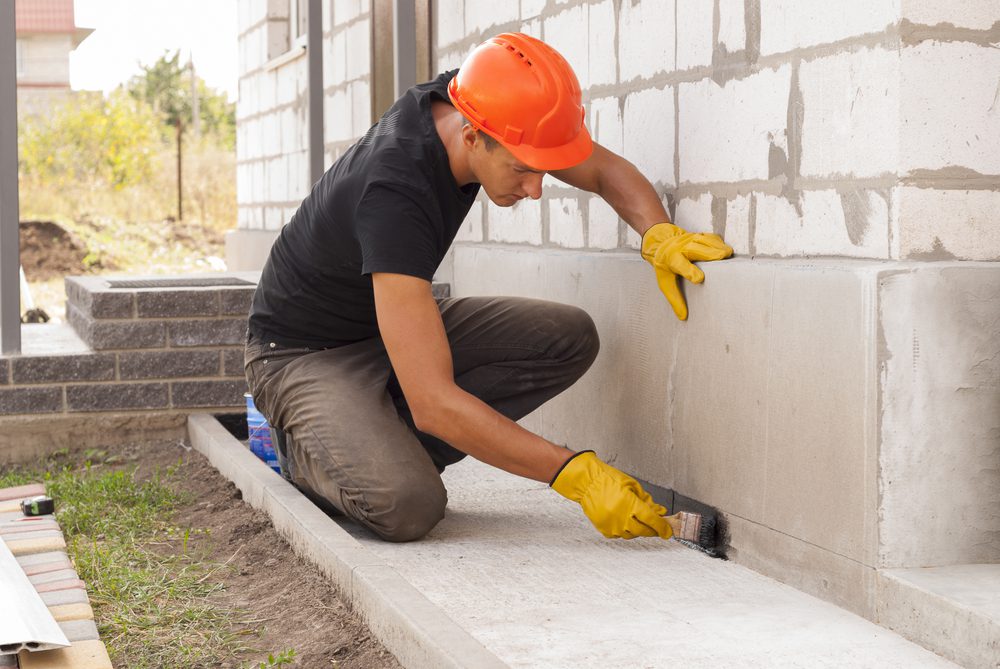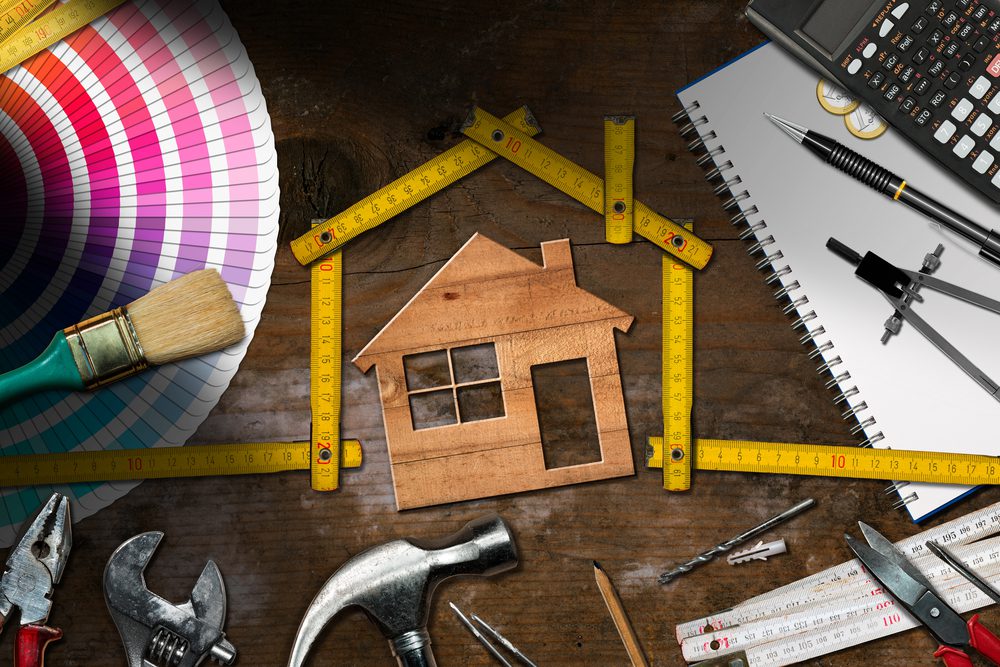Can you do home repairs and still save money?
If you live in a rented home or apartment, chances are that the majority of home repairs you need are going to be taken care of by your landlord, which means that you don’t have to spend any money.
There are also landlords who can’t be bothered with taking care of such things, so they’ll ask the renters to pay for those things and lower the rent for a couple of months. That’s still going to help you save money.
However, if you’re a homeowner, then you have to solve those issues all by yourself, and sometimes they’re not that affordable or easy to deal with. Whether you’re looking for ways to take care of them ASAP without feeling like you won’t have enough money to survive the next month or you’re simply looking for ways to minimize the costs, we’re here to give you our best tips.
Speaking of that, it’s necessary that we do a disclaimer: the tips I’m about to give don’t mean that you’ll finish your home repairs for free, but they will help you to do them wisely and in a way that’s not going to affect your household or your finances too much. Now that everything’s clear, let’s begin!

1. Home equity lines of credit (HELOCs)
As we already discussed, as beautiful and impressive as it is to be a homeowner, sometimes it’s a little hard to deal with everything bad that happens on your property. And I’m pretty sure that you already know that home repairs are not that fun to have.
However, being a homeowner also comes with its own perks, especially when we talk about home equity, which can be a true lifesaver when it comes to major changes and purchases, such as renovations.
Let’s set the record straight: home equity is the difference between how much your house is worth and what you owe on your mortgage. Home equity lines of credit, simply known as HELOCs, are a great financing option if you’re looking for a simple way to take care of your home repairs, especially thanks to the fact that this program is actually a revolving credit line that’s secured by your property.
Experts calculate your HELOC by subtracting what you owe on your home from its appreciative value. Generally speaking, the more equity you have in your home, aka the less money you owe, the bigger the line of credit lenders might give you. This can be a huge deal for you, especially if your home repairs are expensive and need a lot of attention.
2. Homeowners Insurance
This one contains both good and bad news, so carefully pay attention to it. If there was a natural disaster that partially or completely destroyed your home, such as an earthquake or a storm, your homeowners’ insurance policy might cover your home repairs.
If you want to renovate different things in the house and replace your old roof or doors with something new, your policy is likely not going to cover those costs. If you’re not sure, check your papers or ask your insurance company.

3. Personal loans
Another option to consider when you think about ways to finance your home repairs is getting a personal loan. If you need money ASAP, you can even get it on the same day you apply, depending on the lender you choose.
What’s great about this option is that it allows you to spend the money exactly as you like. However, you’ll have to pay it back in a set amount of time. But don’t worry, there are typically set payments, so you know exactly how much you have to give back each time. There are no surprises here, and you can set your household budget exactly as you wish.
4. Home equity loans
This one is similar to the HELOCs we’ve previously talked about because it requires you to have a specific amount of equity in your home. Another thing that they have to do in order to give you the money you need is to use your property as collateral.
However, it’s a bit different from a revolving line of credit in that you will receive one chunk of money and you have to agree to make equal payments each month over a fixed period of time with a deadline.
If you’re thinking of getting a home equity loan, make sure you read the terms and conditions carefully, so you can check if there is any fine print and also decide if it’s suitable for you or not.
Just like with everything else, do your research before you sign any papers so that you’re sure you made the right choice for yourself, your home, and your family.
5. Grants and loans from the government
Another way to pay for your home repairs is to ask the government for help. The government of the United States has a program called Section 504 Home Repair, which lends money to homeowners who qualify so they can take care of their home repairs or even improve their properties.
If you’re a senior over the age of 62, you might be lucky, because you can actually qualify for a grant. However, before you get your hopes up, don’t forget that there are quite a few requirements and rules you must meet. If you’re eligible, they might get you a grant of up to $7,500 or a low-interest loan of up to $20,000.

6. Credit cards
Another option you have to get some financial support for your home repairs is to use a credit card. Experts recommend you use this method when you absolutely need the money and if your home rehabilitation is urgent and can’t wait any longer.
Credit cards are useful when you use them wisely, but the sad thing for the majority of users is that their interest rates can get a bit higher compared to those of home equity lines of credit or personal loans.
Besides that, another thing you should take into consideration before you decide to opt for a credit card to fix your property is that, unlike a home repair loan, your monthly payments can actually be uncertain, and that’s not that good if you like to set a budget for each month.
7. Your savings
The last method on our list might be a suitable one for you if you’re not interested in paying any monthly rates. I absolutely get it: it’s tempting to think that you can get away with getting a home repair loan or turning to a credit card, but if you have enough savings, I think it’s smart to tap into them.
Yes, you’re probably not going to have that much money saved after you’re done with everything, but think about the fact that you won’t have to pay any monthly rates, you don’t have to sign any paperwork, and you don’t have to explain to anyone what you plan on doing in your home.
If you want to give your kitchen a much-desired makeover and make it look and feel like a magical place where you enter and enjoy the most delicious foods, or if you want to invest in your dream deck, your savings might be the one that will help you.
And also, if there are some major problems in your home that can’t wait any longer, such as a leaky roof, your emergency fund is going to come in handy.
If you want to save money but have a hard time doing it, a piggy bank that you can’t open might be a great tool for you. Remember that every single penny counts, so don’t get discouraged if you can’t put in a lot of cash. Good things take time, right?
Are you looking for ways to make some extra pocket money? Here’s one of our best articles: Having a Garage Sale? Make Lots of Cash With These 5 Tricks!








